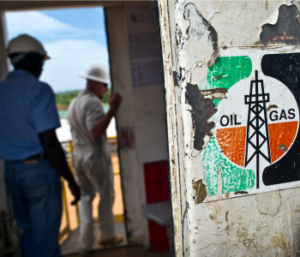Spotlight on an ESID researcher: Daniel Appiah
7 December 2015 What is your background and how did you become involved in ESID? I did a degree in

The politics of governing oil effectively: A comparative study of two new oil-rich states in Africa
Working paper 54 Download pdf Sam Hickey, Abdul-Gafaru Abdulai, Angelo Izama and Giles Mohan Abstract The challenges facing developing countries
Political settlements, the deals environment and economic growth: The case of Ghana
Working paper 53 Download pdf Robert Darko Osei, Charles Ackah, George Domfe and Michael Danquah Abstract The paper explores the
Spotlight on an ESID Researcher: Kojo Asante
29th October 2015 What is your background and how did you come to be at ESID? I first came to
How the centralised politics of education improve access but neglect quality
8 September 2015 Researchers working on ESID's education project presented their comparative findings at the Development Studies Association meeting taking place
Video: Emerging findings on gender
30 July 2015 We recently caught up with Professor Sohela Nazneen, the Effective States gender project lead, to discuss the
Transnational capital and the political settlement of Ghana’s oil economy
7 July 2015 By Kojo Asante and Giles Mohan. How has Ghana – one of Africa’s most celebrated democracies –
High quality education for national development
28 May 2015 By David Hulme. [Reposted from Development at Manchester] Education is still considered a key strategy for reducing
Transnational capital and the political settlement of Ghana’s oil economy
Working Paper 49 Download pdf Giles Mohan and Kojo Pumpuni Asante Abstract Ghana’s recent status as an oil producer focuses
The politics of regional inequality in sub-Saharan Africa: Insights from Ghana and Uganda
Objectives This project aims to deepen our understanding of the structural underpinnings of spatial inequality from a comparative perspective. It
What does ESID’s new gendered political settlements framework offer feminist analysis?
7 November 2014 By Sophie King. Political settlements analysis has been largely gender blind and, as Professor Sylvia Tamale noted at a
Doing Development Differently: The future is now-ish
7 November 2014 By Pablo Yanguas. Two weeks ago Harvard Kennedy School and ODI co-hosted a very particular kind of
Rhoda Osei-Afful
Role Rhoda Osei-Afful is a Research Officer with the Ghana Centre for Democratic Development (CDD-Ghana). She is a key member
The politics of regional inequality in Ghana: State elites, donors and PRSPs
Working paper 41 Download pdf Abdul-Gafaru Abdulai and David Hulme Abstract Through an analysis of Ghana’s HIPC Fund, which was
Regional inequality and spending on education in Ghana: A political settlements approach
15 September 2014 By Pablo Yanguas. ESID's latest working paper investigates why some of Ghana's regions have had greater access
Rethinking the politics of development in Africa? How the ‘political settlement’ shapes resource allocation in Ghana
Working Paper 38 Download pdf Abdul-Gafaru Abdulai and Sam Hickey Abstract Debates over whether democratic or neopatrimonial forms of politics
Ghana’s political settlement undermines prospects for economic transformation
13 August 2014. By Kojo Pumpuni Asante, Franklin Oduro & Awal Mohammed. On 1st August 2014, the Government of Ghana
Dr E. Kojo Pumpuni Asante
Role Kojo is a Senior Research Officer at the Ghana Centre for Democratic Development (CDD-Ghana). He obtained a PhD from
Dr Franklin Oduro
Role Franklin Oduro is Head of Research and Programmes, and Deputy Director at the Ghana Centre for Democratic Development (CDD-Ghana),
Dr Abdul-Gafaru Abdulai
Role Abdul-Gafaru is a lecturer at the Department of Public Administration, University of Ghana Business School. He is also an
Professor Giles Mohan
Role Giles Mohan is Professor of International Development at the Open University and a co-investigator on the project Oil, governance
Can aid bureaucracies think politically? The administrative challenges of political economy analysis in DFID and the World Bank
Working paper 33 Download pdf Pablo Yanguas and David Hulme Abstract Although politics has become central to international development assistance,

